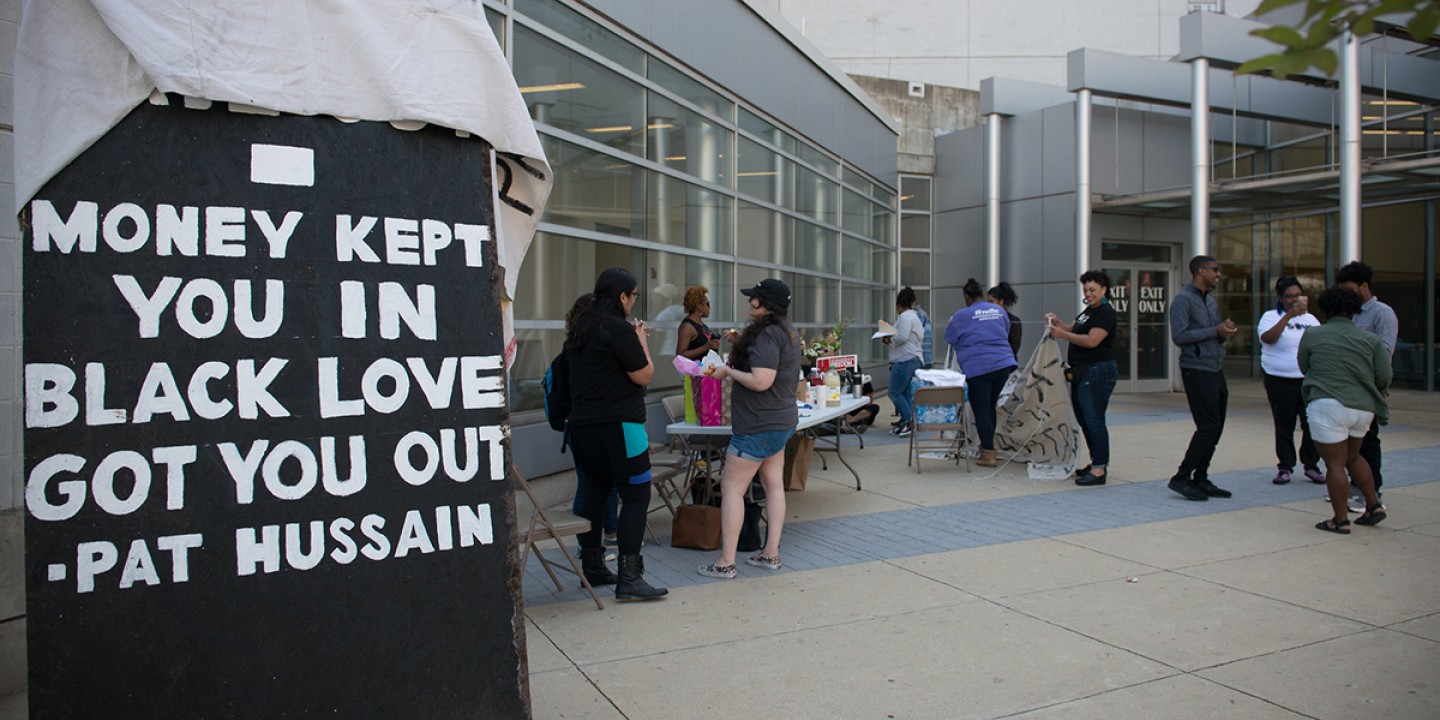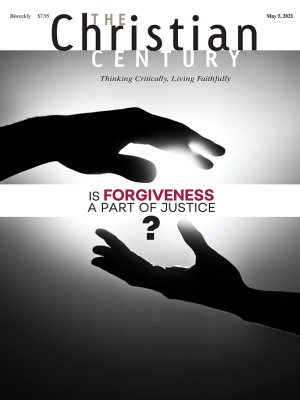Emptying the tombs of the city jail
“There’s a group of people outside,” I said through the intercom, “and they’ve raised money for your bail.”

Several Easter seasons ago, a friend called to ask if I’d come to the jail downtown to visit people. When I showed up, a group of women had turned the sidewalks outside into a makeshift welcoming center—folding tables with coffee and food and cigarettes, flower arrangements everywhere. A small group of people sang and chanted while filling gift bags with toiletries, bus passes, snacks, and grocery vouchers. The local chapter of Southerners on New Ground—a queer, Black-led abolitionist organization—had raised tens of thousands of dollars to pay the bail for Black women and caregivers to return home in time for Mother’s Day that weekend.
When I showed up that Friday morning, the SONG members outside the jail were ready to ransom from captivity all the women whose bail they could afford—to welcome them back into our community and back to their families. But first the group wanted consent, permission from the incarcerated women to pay their bond. And that’s why my friend called me—as a pastor, I’d already been vetted by the administration and granted visitation privileges.
Read our latest issue or browse back issues.
SONG organizers gave me a list of names, the people they wanted to free that day. I spent the morning going up and down the elevator in the jail—submitting a name to the guard at the bottom floor, meeting with the person in a visitation room on an upper level, then reporting the response to the crew outside.
I remember the first visit. After the elevator took me to the fifth floor, I walked to the far end of the corridor, to the visitation area, where I took a seat on the lone plastic chair facing a large plexiglass window. Soon a guard let a woman into the enclosure on the other side of the glass. She remained standing, so I stood. We were strangers to each other.
“Hi, my name is Isaac,” I said through the intercom. “There’s a group of people outside, and they sent me to let you know that they’ve raised money for your bail.”
She leaned toward the window, toward me. “What do you mean? You know how much I need?” I reassured her that the women outside had the funds and were ready, if she was, to get her out that afternoon. “No way! Don’t play with me. You telling the truth?” She covered her mouth with both hands. I nodded quickly, excitedly, and recounted the story of Black women bailing out Black women throughout the South.
She shook her head in disbelief; the news was unthinkable, unimaginable. From her pocket she carefully unfolded a tattered scrap of paper and pressed it against the window for me to see. “I’ve prayed these verses every day I’ve been in here,” she said, showing me handwritten passages copied from Ephesians, Philippians, and the Psalms. “I’ve been claiming God’s promises—and now you’re telling me that the Lord has broken the chains, that Jesus has set this captive free!”
For the last few minutes of our visitation time, we worked out the details of her release—who to contact for a ride, where she could stay the night, friends and loved ones to call. When we were finished, she started to walk away—back toward her cell to gather her things—but stopped and turned to look at me, both of us radiant with gratitude for this moment as we stood together on the edge of hope, on the cusp of liberation. As I walked to the elevator, I heard her call out repeatedly, “Thank you, Jesus!” Her joy echoed down the concrete hallways.
That year, with $100,000, the Durham SONG chapter set free 14 women, with most of the bail amounts in the range of $1,000–$5,000. Over the next several months, as I joined the crew of volunteers to provide transportation and court accompaniment, we saw that half of the women had their charges dropped or dismissed. They had been incarcerated for weeks or months—until SONG ransomed them—not because of any strong case against them but because they couldn’t afford bail. While in jail, some lost jobs and housing. One lost custody of her children.
Incarceration aims to deaden a person’s humanity, to estrange them from their sense of self. Sociologist Orlando Patterson characterizes enslavement as social death; incarceration does something similar. Pretrial detention is a gateway into this realm: alienation from kinship, from community, from life. Fifty years ago George Jackson wrote a letter from his cell in San Quentin State Prison in California. “Capture, imprisonment, is the closest to being dead that one is likely to experience in this life,” he wrote. “My life here is slowly becoming one of complete alienation.” Contemporary poet Jimmy Santiago Baca, writing from the Arizona State Prison, described incarceration as confinement in “an archaic tomb of concrete and iron.”
The weekend after the bailouts we gathered for a celebration at a park. The ramada was decorated with rainbow streamers and vases of flowers. I stood hand in hand with the women who were freed from jail, the women who raised money to liberate them, and all of their friends and family. A chant joined our voices in a song of liberation: “Let my people go; set my people free. I’m letting my people know that I love you like you were me.”
That’s what Easter looks and sounds like to me now—a celebration of life restored, a love that unclenches the grasp of social death. Resurrection is God’s protest against tombs.
A version of this article appears in the print edition as “Emptying the Tombs.”






